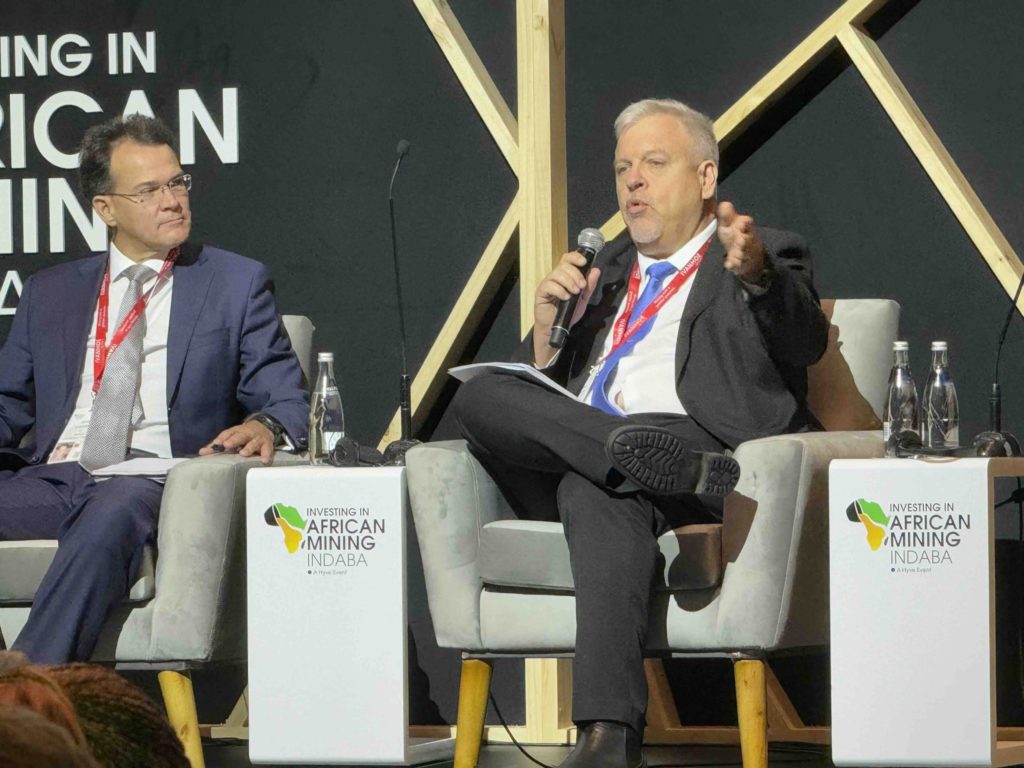Mining Indaba: From crime to catalyst – artisanal miners demand reform
Posted Under Commodity News, On 07-02-2025
Source: mining.com
More can be done to transform artisanal and small?scale mining (ASM) into a safe, transparent, investment-ready sector, according to an industry conference in Cape Town.
But experts warn that curbing endemic corruption comes first, the Investing in African Mining Indaba heard on Tuesday. Formalizing ASM and enforcing anti-corruption measures are two sides of the same coin.
“It’s about moving from crime to investing in a legitimate sector,” David Sturmes-Verbreek of global sustainability organization The Impact Facility said during a panel. It was considering what needs to change to harness the full potential of ASM.
Record-high gold prices attract more than 45 million informal miners across 80 countries to support families totalling 270 million people, according to Sturmes-Verbreek.
Corruption, lack of development and criminal gangs contribute to the rising trend throughout Africa, Central and South America and Asia. Some producers, such as Aris Mining (TSX: ARIS; NYSE-AM: ARMN), are trying to incorporate artisanal miners into the formal sector, but an uneasy relationship exists in most places where mines and the slums they attract interact.
By the numbers
The World Bank has chronicled 368 projects since 1980 to aid artisanal miners at a cost of nearly US$1 billion, with the bank contributing about a third, according to Rachel Perks, a senior mining specialist at the Washington-based institution.
In gold mining, ASM’s share of global supply surged from 4% in the 1990s to 20% today, while for cobalt it climbed from 5% to over 12%.
In South Africa last month, 78 gold diggers died in an underground rescue effort. The illegal miners, locally referred to as zamazama, were among hundreds that authorities had controversially locked in the mine, trying to root out criminal gangs and prevent a wider disaster.
Perks says regulated ASM reduces risks and environmental harm. It also opens big opportunities for wealth and rural development.
“By strengthening regulatory frameworks and ensuring government-led oversight, the sector can transform into a well-governed, investment-ready engine of sustainable development,” she said.
‘Professionalization’
Titus Sauerwein from the European Partnership for Responsible Minerals (EPRM) said pilot projects have shown ASM’s benefits. He warned that scaling these pilots will need sustained public and private investment and decisive government oversight.
In Zimbabwe, formalization transformed the life of Faith Mutete, the founder and CEO of Women in Mining Zimbabwe, who started mining at 15. She went on to earn a doctorate in public health in 2018. She says training and certification programs let her shift from informal work to a recognized profession in a country with 535,000 small-scale miners, 10% of whom are women.
“Professionalization changed my life,” Mutete told the conference.
Another success story is Kenyan entrepreneur Lawrence Ndago, the executive director of Multiflow Geoconsult and Services. He founded the firm dedicated to small-scale mining. Treating ASM as a business, not a nuisance, attracts investment for sustainable growth. His firm restructures ASM operations to reduce risk and boost profits. It also curbs illegal practices.
“When we operate like businesses, we can attract investment and create safe, lasting livelihoods for our communities,” he said.
Fighting corruption
Another panel contemplating why it’s difficult for miners to talk about and address corruption pointed out that ethical practices and anti-corruption measures were fundamental to improvements. The session was framed by the conviction of Singapore-based multinational commodities company Trafigura’s COO for corruption last week.
Werner Duvenhage, managing director of Rio Tinto’s (NYSE: RIO; LSE: RIO; ASX: RIO) Iron Titanium Africa unit, says that corruption taints every stage of mining. He urged companies to enforce strict ethical standards along every link in their supply chains.
“If your partners do not live by the same values, your project becomes compromised,” he said.
Ian Cameron from the Democratic Alliance, South Africa’s main opposition party, said the recent escape of a mining kingpin at Buffelsfontein mine shows how weak rules help criminals. They’re able to extort communities and promote bribery.
“Without a robust anti-extortion plan, criminal syndicates will continue to thrive,” he said in a Jan. 19 statement.
Doing better
If government, industry and communities unite under robust, enforceable frameworks, even entrenched problems like unsafe working conditions and corruption can be tackled, according to Mark Robinson. The executive director of Extractive Industries Transparency Initiative (EITI) gave examples of successful reform.
Ghana’s digital licensing system had exposed corruption last year, EITI said in a December news release. Meanwhile, Indonesia’s disclosure of ownership data flagged suspicious practices and stopped revenue leaks, Robinson said.
In Zambia, the ‘G-factor’ scoring system calculates the government’s share of mining revenue. It does this by dividing collected taxes, royalties and state income by total mine revenue. These metrics help hold the industry accountable, he said. They show what mineral value percentage reaches government coffers.
Minerals Council
Recent progress in South Africa’s broader mining sector offers a powerful lesson for ASM reform. The Minerals Council South Africa’s Zero Harm report, released Tuesday, shows that health and safety interventions reduced fatalities by 91% over three decades. They fell to 42 from 484 in 1994.
Last year, the industry reported 42 fatalities, down 24% from 55. Injuries fell to 1,841, a 16% drop from 2023. There were also fewer cases of occupational diseases. Injuries have fallen by 78% from 8,347 in 1994.
The EPRM’s Sauerwein says the industry has a unique opportunity to transform ASM from a high-risk, corruption-riddled activity into a catalyst for sustainable development.
“When governments, industry and communities stand together under strict ethical standards, we build not just mines, but futures,” Sauerwein said.

